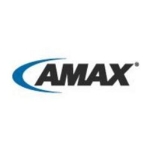The most valuable features are its modularity, scalability, and the ability to scale down the infrastructure and remove some of the physical hardware that was required previously. It gives us the flexibility to build upon it, whether we do one new service or we do the blade service. With the FlexPod, in general, with the UCS chassis and with NetApp, the way they can intermingle and work together seamlessly was a big benefit to us.
As I’ve mentioned, it allowed us to remove some of the redundant hardware aspects of our infrastructure. At the same time, it allowed us to upgrade our top-of-the-rack switches. We were using some of the legacy MDS fiber switches. The Nexus 5Ks gave us the ability to do fiber channel native and FCOE, as well as giving us that fast speed backbone bandwidth that we know we need for FlexPod.
We have greater flexibility than what we've had in the past. Most of our systems were legacy. We're starting to go through a process of upgrading the infrastructure. FlexPod gives us that flexibility to choose between remote sites or the headquarter site; and basically choose between FlexPod Mini, FlexPod Express or full blown FlexPod with 5Ks, UCS chassis and so on. I think the flexibility in the FlexPod designs is what really attracted our organization to it.
We really like the all-flash arrays and the solid-state drives. We’d really like to see, not so much from NetApp but from our perspective, going more towards the SolidFire and doing some metro clusters with NetApp.
So far, we have not had any issues with stability. We just started implementing or migrating some of the services, building some of the new services onto it. We're pretty young into the FlexPod but the future for FlexPod and for our organization looks bright.
As I’ve mentioned, we have a NetApp representative on site. He does most of the storage stuff for us. We rely on them quite a bit. They're fantastic. We get great support with them.
We were on legacy equipment already. We basically said, "What's the next big thing?" Obviously, being a partner with NetApp, they try to promote FlexPod as much as possible.
Initial setup was pretty straight forward. At first, it can be sort of daunting, with all of the components that are brought together, but once you actually start developing the service profiles and the servers, that's pretty much all it is. You've basically got a chassis that serves servers. Once you have the grand scheme of the design, the configurations after that were pretty simple.
I don't deal with the pricing too much but, from what I understand, we got a pretty good deal on some of the FlexPod equipment that we have.
Before choosing this product, I did not evaluate other options.
If you don't have a reseller that you can talk to, talk to some industry experts. Get a demo. Basically, get an idea of what the FlexPod can do for you and which deployment model fits best for your company.
As I’ve mentioned, given what we were dealing with before, integrating with Cisco and NetApp storage, the marriage between those two companies, they came up with a perfect solution that is pretty modular and flexible. We can scale it however we like it, to whatever site we're going to deploy it at.
I'm not too concerned about more integration between the Cisco and NetApp systems. Obviously, you're going to have some separation there, because they are two different companies. Obviously, the interoperability of the different components, being able to work together, is great enough as it is. Being able to have one user interface that controls everything, I don't think you ever get that but, who knows? Cisco could buy out NetApp; who knows? They might just absorb into one interface. For me, that’s not so important, but I can see where some customers, some users, might look at that as a benefit.
When I look at a vendor, the most important criteria for us is what type of premier support they have. If something breaks, do we have 24-hour support? Obviously, pricing comes along with those but I think support is most important to us.








